Funded Projects
2024-2025 Pilot Award Recipients
Building Social Connections for Caregivers of Persons with Dementia from Underserved Communities
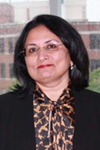

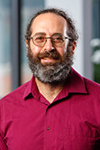 PI/Investigators: Sandhya Seshadri, PhD, MA, MS, Paula Amina Alio, PhD, and Benzi M. Kluger, MD, MS
PI/Investigators: Sandhya Seshadri, PhD, MA, MS, Paula Amina Alio, PhD, and Benzi M. Kluger, MD, MS
Funding Source: UR Aging Institute and Office of Health Equity Research (OHER)
The Alzheimer’s Association estimates there are 6.9 million Americans living with dementia in the United States (2024 Alzheimer’s Disease Facts and Figures). The majority of persons with dementia are cared for by unpaid family members. Health inequities and the lack of access to clinical care and support can make caregiving more challenging for Black caregivers from underserved communities. With limited support, these caregivers may experience significant social disconnectedness and loneliness that is often associated with negative physical and mental health.
The UR Aging Institute has partnered with The Office of Health Equity Research (OHER), part of the Center for Community Health & Prevention (CCHP) at the University of Rochester Medical Center, to fund this new research initiative in support of aging and health equity. This project aims to build social connections and decrease social isolation and loneliness among Black caregivers by developing an intervention that is scalable across marginalized Black communities.
Learn more about the Health Equity Pilot Awards
Role of Aged Bone Marrow Stromal Microenvironment in Hematological Malignancies


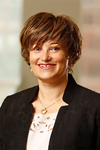
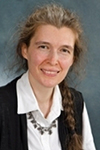
PI/Investigators: Jeevisha Bajaj, PhD, John Ashton, PhD, Vera Gorbunova, PhD, Laura Calvi, MD
Funding Source: UR Aging Institute
The impact of Child Maltreatment on Accelerated Brain Aging and Cognitive Decline in Middle Adulthood: A Prospective MRI and Behavioral Study


Investigators: Elizabeth Handley, PhD, David Dodell-Feder, PhD, Feng (Vankee Lin), PhD, RN
Funding Source: UR Aging Institute
2023-2024 Pilot Award Recipients
Pilot Testing of a Novel Palliative Care intervention (AKI-DIALYSIS) to Help Critically Ill Older Adults and Families with Dialysis Decision-Making
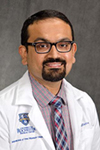
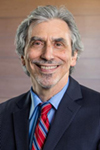

PI/Investigators: Fahad Saeed, MBBS, MS, FASN, Kevin A. Fiscella, MD, MPH, Ronald M. Epstein, MD
Funding Source: UR Aging Institute
Transdifferentiation of Synovial Extracellular Matrix Producing Fibroblast to Inflammatory Fibroblast in Osteoarthritis During Natural Aging

 PI/Investigator: Xi Lin, PhD
PI/Investigator: Xi Lin, PhD
Consultant: Meghan L Falsetta, PhD
Funding Source: UR Aging Institute
The Impact of Age on the Phenotype and Function of CAR-T Cells in Patients with Diffuse Large B-Cell Lymphoma: Implications for Toxicity and Outcomes
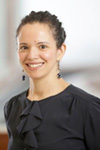
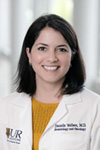
 PI/Investigators: Carla Casulo, MD, Danielle Wallace, MD, Tim Mosmann, PhD
PI/Investigators: Carla Casulo, MD, Danielle Wallace, MD, Tim Mosmann, PhD
Funding Source: Wilmot Cancer Institute and UR Aging Institute
2022-2023 Pilot Award Recipients
Aging of Transcriptional Enhancers In Drosophila Tissues
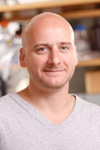
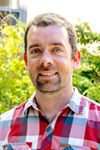 PI/Investigators: Benoit Biteau, PhD, Patrick Murphy, PhD
PI/Investigators: Benoit Biteau, PhD, Patrick Murphy, PhD
Funding Source: UR Aging Institute
Pilot Clinical Trial of Fucoidan to Alleviate Frailty and Reduce Biological Age in Older Adults with Cancer Following Chemotherapy

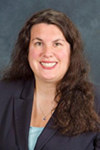
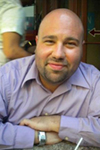

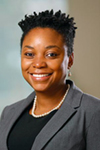


PI/Investigators: Vera Gorbunova, PhD, Michelle Janelsins, PhD, Luke Peppone, PhD, Jeremy McGuire, PhD, Nikesha Gilmore, PhD, Melissa Loh, BMedSci, MBBCh, BAO, MS, Michael Sohn, PhD
Funding Source: UR Aging Institute
Increasing Wellness For Latino Older Adults With Vision Loss – Aumento Del Bienestar Para Ancianos Con Perdida De La Visión
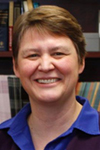

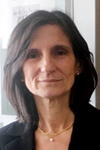
 PI/Investigators: Silvia Sörensen, PhD, Maria M. Quiñones-Cordero, PhD, Diana Fernandez, MD, MPH, PhD, Rajeev Ramchandran, MD
PI/Investigators: Silvia Sörensen, PhD, Maria M. Quiñones-Cordero, PhD, Diana Fernandez, MD, MPH, PhD, Rajeev Ramchandran, MD
Funding Source: UR Aging Institute
The Stem Cell Niche For Clonal Dominance In Myelodysplastic Syndromes (MDS)

 PI/Investigators: Shu-Chi (Allison) Yeh, PhD, Jeevisha Bajaj, PhD
PI/Investigators: Shu-Chi (Allison) Yeh, PhD, Jeevisha Bajaj, PhD
Funding Source: UR Aging Institute
2021-2022 Pilot Award Recipients
Biomarkers to Identify Older Patients with Myeloid Neoplasms at Risk for Declines in Functional, Cognitive, and Psychological Status


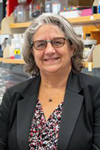 PI/Investigators: Melissa Loh, M.B.B.Ch., Michelle Janelsins, Ph.D., and Paula Vertino, Ph.D
PI/Investigators: Melissa Loh, M.B.B.Ch., Michelle Janelsins, Ph.D., and Paula Vertino, Ph.D
Funding Source: UR Aging Institute
Over 60% of myeloid neoplasms (a group of blood cancer) occur in adults aged ≥60 years. Based on our prior work and others, we have found that up to 73% of older patients with myeloid neoplasms experience worsening in their ability to perform daily activities (functional status), memory and thinking (cognitive status), and mood (psychological status). Being able to identify which older patients with myeloid neoplasms are at risk for experiencing worsening in their functional, cognitive, and psychological status can guide communication about the risks and benefits of cancer treatment, help tailor cancer treatments, and inform strategies such as exercise to prevent it. DNA methylation (DNAm) age is one method of measuring biological age; it uses information from a DNA source (e.g., blood). “Age acceleration” is the difference between DNAm age and chronological or actual age. Compared to chronological age, age acceleration may better identify which patients are more likely to experience worsening in their functional, cognitive, and psychological status. In a sample of 25 older patients with myeloid neoplasm receiving outpatient chemotherapy, we will test whether age acceleration is related to worsening functional, cognitive, and psychological status. This grant will provide data to support future grants of a bigger sample size to understand age acceleration and functional, cognitive, and psychological status in vulnerable older adults with cancer.